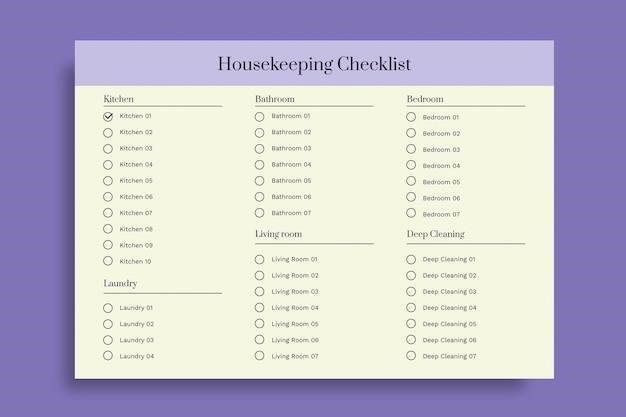Georgia Accessibility Code and Standards
The Georgia Accessibility Code (GAC), effective March 15, 2012, adopts the 2010 ADA Standards for Accessible Design with Georgia-specific amendments. It mandates accessibility in building construction, alteration, and maintenance for individuals with disabilities. PDF versions of the code and related manuals are available online through official state websites.
Georgia Accessibility Code (GAC) Overview
The Georgia Accessibility Code (GAC) ensures buildings and facilities are accessible to people with disabilities. It’s based on the 2010 ADA Standards for Accessible Design but includes Georgia-specific amendments. The GAC applies to new construction, alterations, and the maintenance of existing facilities to guarantee accessibility for all. Key areas covered include accessible routes, entrances, restrooms, parking, and signage. Compliance is crucial for businesses, government entities, and other organizations to avoid legal issues and promote inclusivity. The GAC aims to create a barrier-free environment for individuals with various disabilities, promoting equal access and participation in public life. Detailed information, including the full text of the code, is available in PDF format from the official state resources. Understanding and adhering to the GAC is vital for building a more inclusive Georgia.
Effective Dates and Amendments of the GAC
The Georgia Accessibility Code (GAC) initially became effective on March 15, 2012, adopting the 2010 ADA Standards with state-specific modifications. While the core standards remain consistent with the ADA, periodic updates and amendments to the GAC occur to reflect changes in accessibility best practices and technological advancements. These amendments might address emerging needs or clarify existing regulations to ensure the code remains current and effective. To stay informed about the most recent version of the GAC and any amendments that have been implemented, it is recommended to consult the official state websites dedicated to accessibility and building codes. These sites often provide PDF downloads of the full code and any supplementary documentation outlining changes and effective dates. Regularly checking for updates ensures compliance with the most current regulations.
GAC Application and Scope
The Georgia Accessibility Code (GAC) broadly applies to the design, construction, alteration, and ongoing maintenance of buildings and facilities within the state to ensure accessibility for people with disabilities. Its scope encompasses a wide range of structures, including but not limited to public accommodations, commercial facilities, and state government buildings. Specific requirements detail accessibility standards for various aspects of building design, such as entrances, restrooms, signage, and circulation paths. The GAC aims to eliminate architectural barriers and promote inclusive environments. While the core principles align with federal ADA standards, the GAC may incorporate Georgia-specific provisions to address local contexts. Detailed information regarding the specific application and scope of the GAC for different types of facilities can be found in the official code document, usually available as a PDF download from relevant state government websites.

Accommodations for Students with Disabilities in Georgia
Georgia’s colleges and universities offer various accommodations for students with disabilities, ensuring equal access to education. These support services are designed to help students succeed academically.
University Accessibility Services and Resources
Georgia’s universities provide comprehensive accessibility services for students with disabilities. These services often include assistive technology, such as screen readers and text-to-speech software, note-taking assistance, and accessible learning materials. Many universities have dedicated offices or centers for disability services, staffed with professionals trained to assess individual needs and develop personalized accommodation plans. Students can expect support with academic adjustments, such as extended time on exams, alternative testing formats, and accessible classroom seating. Information regarding specific services and application procedures is typically available on each university’s website, often within the disability services or student accessibility section. These resources aim to create an inclusive learning environment for all students.
Requesting and Obtaining Accommodations
Securing accommodations at Georgia universities typically begins with contacting the designated disability services office. Students will need to provide documentation of their disability from a qualified professional, such as a physician or psychologist. This documentation helps determine appropriate accommodations based on individual needs and limitations. The process often involves an intake meeting to discuss academic challenges and explore potential solutions. Following the assessment, the university will develop an accommodation plan, outlining specific adjustments for classes, exams, and other academic activities. This plan is then shared with professors and relevant staff to ensure implementation. Regular check-ins may be scheduled to monitor the effectiveness of accommodations and make adjustments as needed. The process aims to create a supportive learning environment tailored to the student’s unique requirements.
Note-Taking and Testing Accommodations
Many Georgia universities offer note-taking services for students with disabilities who require assistance in this area. Students typically must register with the disability services office and provide relevant documentation to qualify. The university may employ professional note-takers or arrange peer note-taking among students. For testing, accommodations can include extended time, a quiet testing environment, the use of assistive technology (e.g., text-to-speech software), or alternative formats for test materials. Specific accommodations are determined on a case-by-case basis, depending on the student’s individual needs and the nature of the assessment; Students should discuss their testing needs with their professors and disability services well in advance of exams to ensure appropriate arrangements are made. The goal is to provide equitable testing opportunities that accurately reflect the student’s knowledge and abilities.

Accessibility Resources for Employees in Georgia
Georgia employers must provide reasonable accommodations to employees with disabilities under the ADA. State agencies follow specific accessibility standards and ensure ADA compliance. Resources and contact information are available online.
Reasonable Accommodations in the Workplace
The Americans with Disabilities Act (ADA) mandates that employers in Georgia provide reasonable accommodations to qualified employees with disabilities. These accommodations should allow individuals to perform essential job functions. Examples include modified work schedules, assistive technology, adaptive equipment, or modified workspaces. The specifics depend on individual needs and job requirements. Employers should engage in an interactive process with employees to determine appropriate accommodations. Failure to provide reasonable accommodations can lead to legal action. Resources and guidance on ADA compliance for employers are available through the State ADA Coordinators Office and the Department of Justice. The goal is to create an inclusive and accessible workplace for all.
State Agency Accessibility Standards and Compliance
Georgia state agencies must adhere to accessibility standards ensuring digital properties comply with WCAG 2.1 (Level AA). This includes websites, applications, and online forms. Compliance ensures equal access for individuals with disabilities. The State ADA Coordinators Office assists agencies in understanding and meeting these requirements. They provide guidance on building access, program accessibility, and communication. Regular audits and assessments are crucial to maintain compliance. Failure to comply can result in penalties and legal challenges. Detailed guidelines and resources are typically available on official state government websites and through the State ADA Coordinators Office, promoting inclusive access to information and services.
ADA Compliance for State and Local Governments
Georgia’s state and local governments must comply with the Americans with Disabilities Act (ADA), ensuring accessibility for people with disabilities in public services, programs, and facilities. Title II of the ADA covers state and local government operations, mandating reasonable accommodations for employees and accessible services for the public. Compliance involves removing architectural barriers, providing accessible communication methods, and offering reasonable modifications in policies and procedures. The Department of Justice provides guidance on ADA compliance for state and local governments. Regular self-evaluations and accessibility audits are vital. Failure to comply can lead to legal action and the imposition of significant fines. Resources and technical assistance are often available to support compliance efforts.
Accessing Georgia Government Accessibility Information
Official state websites, such as georgia.gov, provide accessibility manuals, forms, and contact information for inquiries. PDF downloads of relevant documents are often available.
Official State Websites and Resources
Locating accessibility information for Georgia is facilitated through official state government websites. These sites, often ending in “.gov” or “georgia.gov,” serve as central repositories for accessibility-related resources. The Georgia Department of Community Affairs (DCA) and the State ADA Coordinators Office websites are particularly relevant. These platforms offer comprehensive guides, including details on the Georgia Accessibility Code (GAC), reasonable accommodations in the workplace, and accessibility standards for state agencies. Expect to find downloadable PDFs of manuals, forms, and compliance guidelines. Navigation menus usually include dedicated sections on accessibility, disability services, or ADA compliance, making information easily accessible.
PDF Downloads of Accessibility Manuals and Forms
Many Georgia state government websites provide downloadable PDF documents related to accessibility and accommodations. These PDFs often include comprehensive manuals outlining the Georgia Accessibility Code (GAC), detailing specific requirements for building accessibility and reasonable accommodations in workplaces and educational settings. You can also find downloadable forms for requesting accommodations, reporting accessibility issues, or initiating compliance procedures. These documents are crucial for individuals, businesses, and organizations seeking to understand and comply with Georgia’s accessibility standards. Always check the date of the PDF to ensure you have the most current version of the guidelines.
Contact Information for Accessibility Inquiries
For questions or concerns regarding accessibility in Georgia, several avenues for contact exist. State agency websites often list dedicated accessibility coordinators or contact forms for submitting inquiries. The Georgia Department of Community Affairs (DCA) and the State ADA Coordinators Office are valuable resources for understanding and complying with accessibility regulations. Additionally, specific universities and colleges in Georgia have accessibility offices to assist students and employees with disability-related questions. Contact information for these offices is typically available on their respective websites. Remember to specify the nature of your inquiry when contacting any of these offices to ensure a prompt and efficient response.